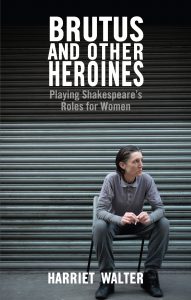I’ve been thinking about Shakespeare. Not unusual. I probably think about him at least once every two minutes as chaps are supposed to do about … but never mind that.
I used to tell my A Level English Lit students that the material is so strong that whatever you do it, it simply bounces back. And I stand by that. I seem to be seeing or reading about a wider range of Shakespeare interpretations and angles than ever just now. Emma Rice’s riotously adventurous A Midsummer Night’s Dream at The Globe this summer may not have pleased everybody (and it clearly worried the Globe’s Board) but many critics were blown away by it – although whether it was right for that venue is another matter.
I’ve just accepted an invitation to review Salon Collective’s The Tempest (on cue) at the Cockpit next month. The company is experimenting – rather fascinatingly – with following 15th and 16th century practice and not allowing the actors to rehearse together before the show. They simply have cues. Well, I’ll reserve judgement until I’ve seen it but it’s a brave and potentially very enlightening idea.
That Tempest is bound to be very different from the participative one I saw earlier this year done by Kelly Hunter and her Flute Theatre colleagues for young people with autism. The level of engagement and participation the company skilfully managed to build was extraordinary.
Then there’s the growing trend for gender-blind casting. Harriet Walter’s very compelling book Brutus and other Heroines is hot off the press from Nick Hern Books.

She discusses not only her experience of playing Brutus and Henry IV at the Donmar Warehouse but also decades of playing roles such as Viola, Beatrice and Imogen all of whom would originally have been played by boys. It’s quite a read. And presumably we’re all going to beg, borrow or steal to get a ticket to see Glenda Jackson as Lear at the Old Vic?
Children are at it too. Shakespeare’s School Festival is very busy this term enabling primary, secondary and special schools to present 30 minute versions of various plays in regional festivals. I’m booked in to see my own old secondary school (Sydenham High School) in a festival with three other schools at Broadway Theatre in Catford later this month. And SSF is raising funds with a celebrity (including Meera Syal, Christopher Ecclestone and others) Trial of Hamlet at Wyndhams Theatre on 27 November. That’s preceded by a warm up public engagement event – Evidence Release Flashmobs outside Royal Courts of Justice and Middle Temple on 9 November.
I’ve just interviewed Jacqui O’Hanlon, the RSC’s Director of Education too (not for the first time) and she is very passionate about the power of Shakespeare to transform the lives of young people provided that they start it younger, do it on their feet and see it live. The Globe thinks that too. Witness its vibrant annual 90 minute Shakespeares supported by Deutsche Bank and offered free to state schools in London and Birmingham. You can now buy editions of those abridged versions – published by Hodder Education. I recently reviewed Macbeth.
Perhaps it’s the flexibility of Shakespeare which has made him the world’s most iconic playwright as well as the universality. “He’s global property and I can think of no other writer who occupies that position” says Jacqui O’Hanlon. So let’s keep pushing the boat out and approaching the plays open mindedly and eclectically. One of Shakespeare’s many strengths is that he can accommodate all points of view, attitudes and takes.